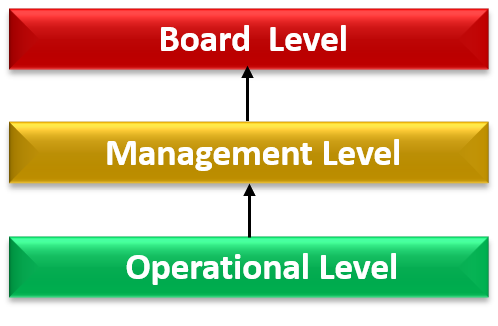Climate change is the global challenge that affects everyone and everywhere that we cannot ignore. BOCHK Asset Management is committed to our clients in coping with the challenges and enjoy environmental benefits of progressing toward a low-carbon world. We strive to promote climate change that benefits our clients, society, and the environment for a more sustainable future.
We understand that the investment decisions we make today will have a long-term influence on our society. We have established a climate risk management task force at BOCHK Asset Management that drives and monitors our climate-related risk strategy. To ensure that we fully consider how to manage emerging climate challenges in our investment processes, we use a variety of tools and services to assess and monitor climate-related risks. We are committed to our clients in providing transparent and regular updates on our climate-related risk management measures through reports or disclosures on our website at least once a year.
BOCHK Asset Management's Approach to Sustainability
Our Governance
At BOCHK Asset Management, we strive to strengthen our sustainability initiatives through a three-tiered sustainability governance framework at the board, management, and operational levels.

Supported by our management committee, the board oversees climate-related issues and monitors the effectiveness of the climate management strategy at least once a year during board meetings. Our management committee monitors and reviews climate-related risk manuals, programs, and effectiveness and provides updates to the board at least once a year to ensure the board's oversight. The climate risk management task force, which is chaired by senior management and comprised of representatives from relevant departments, coordinates and executes climate-related work to ensure that strategies, policies, and targets are implemented and achieved. The climate risk management task force meets at least twice a year to review the status and progress of efforts to manage climate-related risks and provide comments and progress updates to the management committee.
Integrates Sustainability Into Our Strategy
We believe that taking climate-related risk into account when making investment decisions will improve risk management and lead to long-term business opportunities and environmental advantages. BOCHK Asset Management is committed to incorporating climate-related risk considerations into its investing philosophy, analysis, and process that are compatible with the underlying strategy to monitor the carbon footprint of investment portfolio of our collective investment scheme. We integrate climate-related risk factors or opportunities as part of our investment decisions across asset classes and regions to enhance the sustainability of the investments we make on our collective investment scheme. To do this, we consider key climate-related risk factors as part of the investment research for each portfolio. We will also make reference to third-party and proprietary research reports regarding investee companies' potential climate-related risks and opportunities. All these results will be integrated into annual investment review so as to assist the senior management in making a more well-informed investment decision in terms of climate-related risks.
BOCHK Asset Management employs a top-down and bottom-up approach in developing investment strategies based on qualitative and quantitative variables, including relevant and material climate-related risks and opportunities for portfolio management. We employ in-house or third-party data tools to determine the relevance and materiality of climate-related risks on each investment portfolio with reference to their investment strategy, trading frequency, sectors and key geographical locations of the underlying, and to analyze each portfolio's climate-related risks to assess their potential impacts on the portfolio. We also assess investee companies' carbon footprints in-house or through external professionals to evaluate the exposure of the underlying portfolio to climate-related risks. We extensively review and monitor the climate-related risks of the portfolios of our collective investment scheme, including physical risks, transition risks and greenhouse gas ("GHG") emissions etc at least once a year.
Engagement Policy
In 2021, the Bank of China supported and signed the United Nations Principles for Responsible Banking and is a member of the United Nations Environment Programme ("UNEP") Finance Initiative. BOCHK Asset Management actively cooperated with the parent group and supported the implementation of relevant principles. We are committed to the practice of responsible investment and incorporating Environmental, Social and Governance ("ESG") factors, including climate-related risks, into investment strategies and work processes, and conducting regular evaluation on potential investment opportunities in line with risk appetite, customer allocation and/or products under the premise of fulfilling investment guidelines and risk-adjusted investment returns, priority will be given to ESG/green bond projects. At the same time, we will actively communicate with various stakeholders (including but not limited to customers, investee issuers, etc.) and convey the company's sustainable development, active management of climate change and ESG concepts, and promote the gradual transition of society to low-carbon development.
When there is a material gap or difference between our expectations and the behavior of the investment targets, or when we find that the investment target has the following circumstances, we will actively communicate our commitment to ESG and climate-related risk management objective under our climate-related risk management manuals and the actual situation and needs:
1. After conducting our ESG assessment of the investee(s), if it was found that the investee(s) has a relatively low ESG score or rating;
2. Significantly breaching of the ESG or climate-related risks management manuals or objectives within the Bank of China Group or our company;
3. No disclosure of material ESG matters (including climate-related risk management matters) and their associated improvement plans or targets; and
4. When it is found that there are major events related to climate risks in the investment targets.
Participation may include but is not limited to, emails, letters to the Board of Directors, conference calls, management meetings or annual and special general meetings, etc. We will choose an appropriate participation method according to the actual operation and needs of BOCHK Asset Management, and consider the feasibility of various methods. We will regularly assess the performance of the investment target(s) against ESG and climate-related risks and, if necessary, will initiate another engagement.